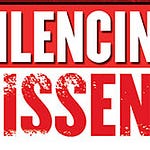Citizens: you can contact your legislators by clicking here to tell them to consider converting HB 1473 into a genuine study of the reforms needed for the 340B Program.
A Broken Program That Needs Reform
Yesterday, HB 1473 was heard in the House Industry, Business, and Labor Committee with the goal of expanding the 340B prescription drug price reduction program.
Also yesterday, an episode of Open Range on BEK-TV aired where I interviewed one of the people testifying against this bill. You can watch that at the top of this article.
HB 1473: North Dakota Must Reject Expansion of Broken 340B Drug Program and Demand Real Reform
(The following is testimony I provided to the committee in writing.)
The rising cost of prescription drugs is a significant concern for Americans. The 340B drug pricing program, created in 1992 with the aim of providing discounted medications to vulnerable patients through safety-net healthcare providers, has become problematic. Intended to help vulnerable populations access affordable medications and allow providers to stretch federal resources, the program suffers from critical flaws.
A central issue is the lack of adequate oversight, transparency, and a clear definition of a "340B patient." This deficiency has allowed large hospital systems, often for-profit, and major pharmacy chains to exploit the program for financial gain. They aggressively acquire smaller clinics to access 340B discounts, purchase drugs at reduced prices, but frequently charge full retail prices to insurers, Medicare, Medicaid, and even uninsured patients, pocketing the difference as profit. This practice diverts discounts intended for the needy to corporate bottom lines.
This flawed system has several negative consequences. It fuels healthcare consolidation, disadvantages independent pharmacies, and contributes to the growing problem of pharmacy deserts, especially in rural areas. Local, independent pharmacies struggle to compete with massive chains thriving on 340B profits, diminishing patient choice and personalized service.
The exponential growth of contract pharmacies, particularly for-profit chains (increasing by 8000% since 2010 HRSA guidance), has significantly altered the program's landscape and raised integrity concerns. These contract pharmacies generate substantial profit margins (estimated at 72% on 340B drugs), leading to situations where some 340B hospitals profit far more than they spend on charity care. Paradoxically, despite the overall growth of 340B pharmacies, their presence in socioeconomically disadvantaged neighborhoods has declined, and independent pharmacies vital in rural areas are closing.
There is significant doubt whether the program is effectively reaching vulnerable populations. Evidence suggests that the discounts are not consistently passed on to patients, especially the uninsured, and that the program may primarily be bolstering hospital profits. Some 340B entities even contradict the program's mission by not offering discounted prices to uninsured patients at contract pharmacies.
Expanding the 340B program in its current form, as proposed by North Dakota's House Bill 1473, is not a solution but an exacerbation of the existing problems. It would amplify the flaws and perverse incentives that have hijacked the program's original intent. Instead of expansion, fundamental reform is necessary.
Meaningful reform must include:
Clearly defining who qualifies as a 340B patient.
Ensuring 340B patients are aware of their status and benefits.
Demanding radical transparency regarding where 340B money flows, including profits of hospital systems and pharmacy chains, and the amount reaching intended patients.
Implementing stronger oversight and accountability measures.
Mandating a patient benefit focus, particularly for the uninsured.
Re-evaluating contract pharmacy expansion and addressing socioeconomic disparities.
Accountability for a public program is essential and does not necessitate revealing private patient information or legitimate trade secrets. North Dakota has an opportunity to lead the nation by rejecting HB 1473 and championing real reform. Prioritizing patients over profits and accountability over opacity is crucial to ensure the 340B program fulfills its original promise of providing affordable medications to vulnerable populations. It is time for policymakers, healthcare providers, and stakeholders to engage in thoughtful discussions and implement reforms to realign the program with its core mission and genuinely serve those it was designed to help.
To Summarize:
The premise of 340B was sound. Pharmaceutical companies would offer discounts, and those savings would be passed on to low-income and vulnerable patients. However, the program's fatal flaw lies in its lack of oversight, transparency, and a clear definition of who truly qualifies as a “340B patient.” This gaping hole has been exploited by large, often for-profit, hospital systems who have aggressively acquired smaller clinics, not out of altruism, but to gain access to those sweet 340B discounts.
These entities, alongside major pharmacy chains contracted with them, purchase drugs at drastically reduced 340B prices. Yet, when you or I, insured or uninsured, pick up our prescriptions at these locations, we rarely, if ever, see those savings directly. Instead, these hospitals and pharmacies often charge full retail prices to insurance companies, Medicare, Medicaid, and even the state health plan, pocketing the substantial difference as profit. It's a hidden windfall, a system where the discounts designed for the needy are diverted to pad corporate bottom lines.
This isn't just an abstract economic issue; it has real-world consequences. This flawed system fuels healthcare consolidation, disadvantages independent pharmacies, and contributes to the growing problem of pharmacy deserts in rural states like our own. Your local, trusted pharmacist on Main Street struggles, while massive chains thrive, often offering impersonal service in a transactional environment.
Instead of expansion, North Dakota must demand reform. Our legislators have a unique opportunity to lead the nation by injecting common-sense fixes into this broken system. We need to clearly define who a 340B patient is, ensure those patients are aware of their status and benefit, and, most importantly, demand radical transparency.
Transparency is not a dirty word. We must know where the 340B money is flowing. How much are hospital systems and pharmacy chains profiting from this program? How much is actually reaching the patients it was meant to serve? This is public money, ultimately derived from taxpayer dollars and insurance premiums. We, the public, have a right to see where it's going.
Some may raise the tired objections of “trade secrets” and “regulatory burdens.” But accountability for a public program is not about revealing private patient information or legitimate trade secrets. It’s about ensuring that a program intended to help the vulnerable is not being exploited for profit at the expense of patients and taxpayers alike.
North Dakota has a chance to be a beacon of reform, to demonstrate that we prioritize patients over profits and accountability over opacity. We urge our legislators to reject HB 1473 and instead champion real, meaningful reform of the 340B program. Let’s ensure this well-intentioned program finally delivers on its promise and truly benefits those it was originally designed to help – the vulnerable patients in our communities who need affordable medication most. It’s time for North Dakota to lead the way in fixing this broken promise.












Share this post